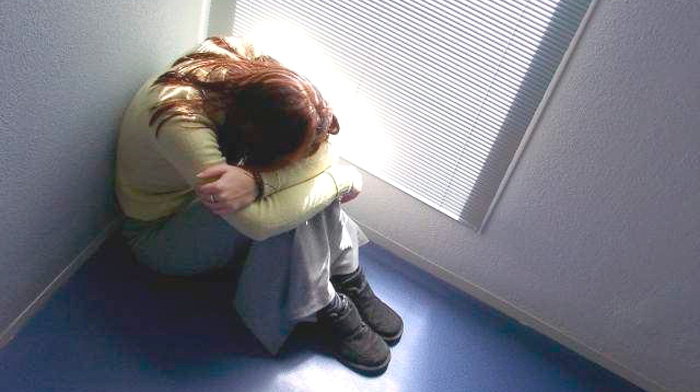Content
- How to understand a teenager
- Communication with a teenager
- How to learn to understand a teenager
- How to help a teenager
Psychologists call adolescence crisis and even dangerous. It was at this time that boys and girls abruptly mature, changing both externally and internally. During this period, the child usually reassesses values, he tries to realize his “I” in the world.
In addition, adolescents undergo significant hormonal changes in the body, the psychological state becomes unstable: the child’s mood changes dramatically, for no reason he can yell at his parents or cry unexpectedly …
Teenagers are overcome by one desire – by all means look like adults. If before the child obediently carried out the instructions of the parents, now he is able to rebel against domestic duties. It may seem to a teenager that his rights are being infringed, and he begins to express his displeasure.
Psychologists emphasize that a child in his teens is struggling for his freedom. To do this, he can make a scandal, leave home, try to smoke and even drink. In this situation, adults need to remember: their child does not need so much freedom as a demonstration before them of the right to make decisions independently. Therefore, parents are better off avoiding conflicts and trying to calmly talk with their child on equal terms..
How to understand a teenager
Often, parents do not understand why an excellent boy turned into an uncontrollable bully, and a modest girl became a rude girl. Psychologists explain that there is nothing surprising in such metamorphoses: in this way adolescents want to increase their authority among peers, become leaders in the class, but sometimes they just do so in spite of parents and teachers.
As a rule, during the transition period, a teenager can go to extremes. Either he will act judiciously as an adult, then he will suddenly turn into a capricious kid and do a lot of stupid things. A teenager can dramatically change his hobbies: he will be interested in street dancing, then he will switch to parkour or parachuting.
Communication with a teenager
Adolescents in transition can get into unpleasant situations. In such cases, they often become self-contained and even stop communicating with the outside world. This is a warning signal for adults, meaning that the child urgently needs help. It is likely that the teenager is experiencing serious stress at this moment. In this situation, adults can recommend the following:

– be ready at any time to chat with a son or daughter;
– without interrupting, patiently listen to the child. You should know that if a teenager tells something to an adult, then he trusts him. Therefore, it is necessary to try not to inadvertently scare his confidence;
– Do not make too many claims against the teenager and do not have high expectations. Such a moral burden is not easy to bear even for an adult;
– pay attention to the positive qualities of the child, more praise him and strongly support.
Nurture by example
Experts say that adolescents are keenly aware of any falsehood from adults. Therefore, parents, before requiring their son or daughter, for example, to clean their room, need to often clean up the apartment themselves and educate their child by example.
Psychologists warn that adolescence is a rather difficult and responsible time for both adolescents and their parents.
Parents are tormented by the question: “What degree of freedom to provide the child?”. And everyone answers it in his own way. But most importantly, psychologists say, adults need to adhere to the golden rule – do not go too far.
Specialists distinguish two categories of moms and dads. The former give their child complete freedom. They let his upbringing drift, do not know in which company their son or daughter spends time, what he does. Of course, adults behave so lightly. A child left to his own devices can fall into a bad company.
Another type of parents – those who do not give their child a step to step without their help. They control his thoughts and actions, ignoring the person. Enhanced parental control is another extreme. “I know perfectly well what will be better for my child,” say moms and dads of this type. However, in the future, it will be difficult for their child to make independent decisions, since adults always decided for him.
How to learn to understand a teenager
Most importantly, parents should understand that their child is a person who has his own feelings and weaknesses, his own opinions, and opinions. And the task of adults is to support the teenager, and if necessary, help him.
Psychologists warn: many children in their teens love to experiment by putting on various behavioral masks. Moreover, these masks are not always positive. Such experiments often infuriate parents. Meanwhile, adults need to remember that in this way a teenager tries to find his place in the world. Chances are that these extravagant antics will pass over time..
How to help a teenager
It is very important that the teenager knows that, despite his mistakes, poor school and problems with peers, he always has a reliable friend – a house, loving parents, to whom he can come to them for help in any difficult situation.
Tips for parents in dealing with a teenager
Be interested in your child’s hobbies.
Stay on top of his favorite computer games and movies.
Listen to the music of his favorite band with your child. Note if you liked something, your child will be pleasantly surprised and very pleased.
Remember praise is never too much.
Despite the fact that a teenager seems to be an adult, he still needs moral support. If the boy is playing football, praise him for every goal scored. If a child enthusiastically rides a skateboard, admire his difficult trick. If your daughter embroiders paintings, sincerely be surprised at her unusual works..
Talk to your child more often.
Despite being busy at work, take the time to chat with your children. It is better to ask adolescents questions that they can give a detailed answer to, rather than trying to get rid of the mean yes or no. It is best to talk with the child, as if by the way – in the kitchen while preparing dinner or on the way to school, without focusing on communication.
Remember your youth
To better understand the teenager, psychologists advise parents to remember themselves at 13 years old. You can ask grandparents to help with this. It will be curious to find your old things, sort out photos, and then tell your son or daughter about yourself in your teens, remembering your experiences then. Surely after this, the teenager will open an adult from a different, unexpected side.
Parents need to become a senior friend for him during his teens, communicating on an equal footing. It is necessary to strive for mutual understanding and trust to prevail in the basis of relations with a child.













